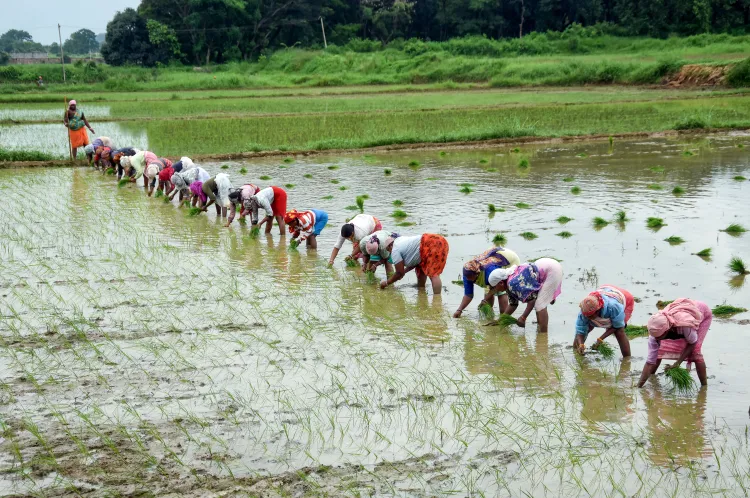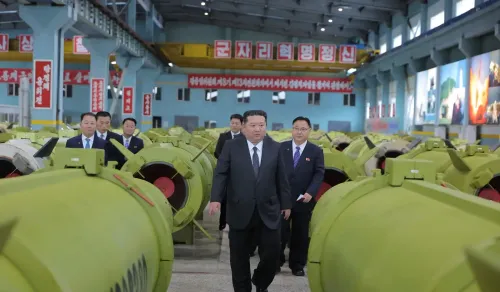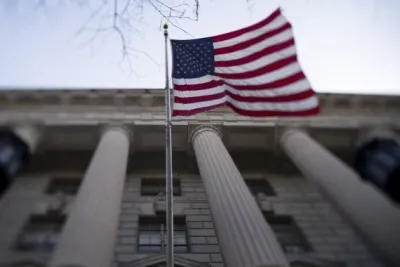How Does the India-UK FTA Create a $37.5 Billion Market for Indian Farmers?

Synopsis
Key Takeaways
- Preferential access to the UK’s $37.5 billion agricultural market.
- Zero duty on processed foods enhances rural exports.
- Job growth in IT, finance, and consultancy sectors.
- Indian fishermen gain access to a $5.4 billion market.
- Clearer visa regulations for skilled professionals.
New Delhi, July 24 (NationPress) The India-UK free trade agreement has granted preferential access for Indian farmers to the UK’s $37.5 billion agricultural market, while ensuring that India safeguards its sensitive sectors such as dairy, vegetables, apples, cooking oils, and oats, according to an official statement.
Additionally, there is a significant advantage for rural India and exporters with zero duty on processed foods, a reduction from previous duties of up to 70 percent.
The trade agreement also significantly benefits Indian fishermen, as the $5.4 billion UK market for marine exports becomes accessible with the UK’s import duty on marine products reducing to zero from as high as 20 percent.
This free trade agreement also opens up exciting new prospects for India’s youth, who will see increased job opportunities and higher wages in service sectors such as IT, finance, and consultancy.
The duty-free access to the UK’s $238 billion market enhances job creation for young people and unveils new career paths in the export of textiles, leather, and gems. Furthermore, the UK market now welcomes Indian youth in fields like education and architecture services.
The agreement also facilitates smoother operations for Indian businesses, as the FTA provides simplified customs, equal treatment, and procurement access. Indian MSMEs can now bid for UK government contracts, and the services sector benefits from improved visa clarity.
Moreover, the FTA boosts job creation, particularly in labour-intensive sectors like textiles and clothing, which gain a competitive edge in the UK market.
The free trade agreement stipulates zero duty on key sectors, down from duties of up to 12 percent on textiles and clothing, 8 percent on chemicals, and 10 percent on base metals.
Businesses in the IT and services sectors now enjoy greater clarity regarding skilled Indian professionals. This includes better mobility access to the UK, allowing up to 1,800 Indian chefs, yoga instructors, and classical musicians to temporarily relocate to the UK to provide their services.
A senior official indicated that around 75,000 Indian workers in the UK will benefit from a 3-year exemption from social security contributions.
Alongside the FTA, the UK and India have established a Double Contributions Convention (DCC). This agreement ensures that employees transitioning between the UK and India, along with their employers, are only responsible for social security contributions in one country at a time.










